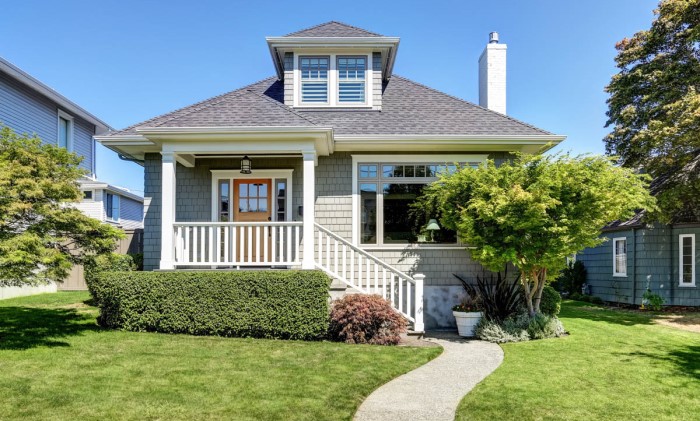Have you ever considered owning a cozy cabin in the woods, a beachfront condo, or perhaps a mountain retreat? The allure of a second home is undeniable, offering a place to escape the hustle and bustle of everyday life and create lasting memories. But before you dive headfirst into this exciting adventure, let’s explore the ins and outs of buying a second home or vacation property.
Why Consider a Second Home?
Owning a second home is more than just a status symbol; it’s about creating a sanctuary that fits your lifestyle. The benefits are numerous: a personal retreat for unwinding, recharging, and enjoying quality time with loved ones; a potential investment opportunity; and the chance to generate rental income. Here’s why many consider this option:
Escape and Relaxation
Imagine having a personal retreat where you can unwind, recharge, and enjoy quality time with loved ones. Whether it’s a cabin tucked away in the woods or a sunny beach house, a second home offers a much-needed escape from daily stressors. It’s a place where you can truly relax, away from the hustle and bustle of city life.
Investment Opportunity
While not guaranteed moneymakers, second homes can appreciate over time, particularly in desirable locations. If you buy in an area with growing demand, you could see a significant return on your investment down the line. It’s like planting a seed that could grow into a financial tree.
Rental Income
Another potential benefit is rental income. If you plan to rent out your second home when you’re not using it, you can generate additional income to offset costs and contribute to your retirement savings. However, research local laws and market conditions to maximize this opportunity.
Factors to Consider Before Buying a Second Home
Buying a second home isn’t just about picking a pretty spot and making an offer. Several crucial factors must be considered to ensure it aligns with your lifestyle and financial goals.
Location, Location, Location
The age-old adage remains true. Location is everything when it comes to real estate. It’s not just about the view, but also about what suits your ideal lifestyle. Do you crave the beach, the mountains, or a quiet rural setting? Also, consider proximity to amenities, weather, and local attractions. The right location can enhance your lifestyle and increase your property’s value.
Budget
Determining how much you can afford to spend is essential. Consider the purchase price, property taxes, insurance, maintenance costs, and potential rental income. Don’t forget to budget for unforeseen expenses like repairs and property management fees if you rent it out.
Usage
How often will you use your second home? Will it be a weekend getaway, a summer retreat, or a full-time residence? Knowing this will help you decide on the type of property that best suits your needs.
Maintenance
Owning a second home means you’ll need to manage its upkeep. Consider the ongoing maintenance required for your chosen property. Will you be able to handle it yourself, or will you need to hire a property manager? Remember, a well-maintained home is a happy home!
Financing Options
Explore your financing options, such as a second mortgage, a home equity line of credit, or a vacation home loan. Be prepared for stricter lending requirements compared to a primary residence. It’s always wise to shop around for the best rates and terms.
Second Home vs. Vacation Condo
Choosing between a standalone second home and a vacation condo can be challenging. Both have their pros and cons.
Ownership Differences
A second home offers full ownership and control over the property, giving you the freedom to personalize and manage it according to your preferences. If you value autonomy and control, a second home might be the perfect fit for you.
Maintenance Requirements
Condos often have a homeowner’s association (HOA) that handles exterior maintenance and shared amenities, significantly reducing your workload. This convenience can provide peace of mind, knowing that your property is being well-maintained without the need for your direct involvement.
Available Amenities
Condos typically offer shared amenities like pools, fitness centres, and clubhouses, while second homes may require you to build or maintain your own. Consider what suits your lifestyle better—a community feel or more privacy.

Legal and Tax Implications of Owning a Second Home
Before jumping in, it’s crucial to understand the legal and tax implications of owning a second home.
Property Taxes and Deductions
Depending on your country and state, you might be eligible for certain tax deductions related to mortgage interest and property taxes on your second home. Always consult with a tax professional for specific guidance.
Local Laws and Regulations
Be aware of local laws and regulations, especially if you plan to rent out your second home. Some areas have strict rules about short-term rentals, so do your homework!
Choosing the Right Type of Second Home
Your dream second home could be anywhere—a sun-soaked beach, a tranquil mountain, or even a bustling urban area. Here are some popular options:
Beachfront Property
The sound of waves and breathtaking sunsets—beachfront properties are highly desirable. However, they come with challenges, such as higher insurance rates and the risk of natural disasters.
Mountain Retreat
Mountain homes offer peace, fresh air, and plenty of outdoor activities. But they also come with unique challenges, like accessibility issues during winter and potentially higher maintenance costs.
Urban vs. Rural Settings
Do you prefer the hustle and bustle of a city or the calm and quiet countryside? Urban settings provide easy access to amenities and entertainment, while rural areas offer peace and privacy. The choice ultimately depends on your lifestyle preferences.

Steps to Buying a Second Home
Ready to take the plunge? Here’s how to go about it.
Research and Planning
Start with thorough research. Understand the market trends, visit potential locations, and weigh the pros and cons of each. This step is crucial in making an informed decision and ensuring your second home meets your expectations.
Getting a Real Estate Agent
A local real estate agent can provide invaluable insights and professional guidance, helping you navigate the buying process with confidence. Their expertise in the local market can be a significant asset in your second home journey.
Finalizing the Deal
Before signing on the dotted line, ensure you’ve covered all bases—finances, inspections, legal requirements, etc. It’s better to be safe than sorry!
Conclusion
Owning a second home can be a rewarding experience, but it’s essential to weigh the pros and cons carefully. By considering factors like location, budget, usage, maintenance, and financing, you can make an informed decision that aligns with your goals and lifestyle. So, dream extensively, research, and confidently embark on your second home journey.
FAQs
Can I use a second home as a tax deduction?
Yes, under certain circumstances, you can deduct mortgage interest and property taxes on your second home. Consult with a tax professional for specific guidance.
What are the insurance costs for a second home?
Insurance costs for a second home can vary depending on location, property type, and coverage level. Getting quotes from multiple insurers to find the best deal is essential.
Can I rent out my second home?
Yes, you can rent out your second home, but your area may have restrictions or regulations. Check with local authorities to understand the rules.
Should I hire a property manager for my second home?
If you plan to rent out your second home or live far away, hiring a property manager can be beneficial for handling maintenance, repairs, and tenant management.
Is it an excellent investment to buy a second home?
While there’s no guarantee of a return on investment, second homes can appreciate over time, especially in desirable locations. However, it’s essential to consider other factors like rental income potential and maintenance costs.
—
The real estate for sale by the housing properties provides many benefits. It is a great time for buyers who have waited for a long time for the prices of real estate to decline.
Why continue renting a place or staying in a hotel during the holiday when there’s an excellent opportunity to buy a second home? However, you cannot just go on and purchase a property; you require the assistance of a professional property dealer or a real estate agent.
This post will review some of the advantages of buying a second home or a condo for vacation from a registered real estate company.
The Benefits of Buying a Second Home
Are you thinking of buying a second home? There are plenty of perks. You can modify the property as per your liking. Put a home theatre system or perfectly customize a generous walk-in closet to welcome in the home. However, other benefits, such as financial benefits, are discussed below.
Negotiation: To Reach a Perfect Price
If you buy a home from the real estate for sale, you do not have to pay any fees to the agent. Only the negotiation process becomes less or more considered a small one. Today, with such advancements, the negotiation process can be done through online websites with the agent at the time of booking. It becomes necessary for the buyers to consult the agencies and have a pleasant conversation on the negotiation that can fulfil the dream of having a home or a vacation condo. Direct communication for the deals works more efficiently than any other way.
There is Flexibility in Prices
The most significant advantages of purchasing a second home from the real estate sale are less commission availability and flexibility in prices. It is observed when a person buys a home through real estate companies, one will end up paying a significant amount of commission. When dealing during the sale season, the fee level drops, which benefits the buyer more. This helps the customer save substantially on the purchase of the property. Thus, you can finally accomplish the dream of buying a second home or a vacation home.
Complete Knowledge of Second Home Purchase
Besides the financial angle, you must also focus on getting familiar with the property. Thus, you must schedule a site inspection to learn about the property when looking for real estate for sale or buying a vacation condo. Also, having complete information on everything required, including the setting of papers, actual prices, all documentation, and legal formalities, can be an added advantage. Being armed with such information considerably decreases the chances of being scandalized. Through this process, buyers can avail themselves of the best benefits from a real estate company that provides all the work faster.
Focusing on Pros of Contacting a Real Estate Agent
- If you are buying a home from a real estate company, then there is no need to pay the agent fees like the other agents.
- You can converse with the seller directly without any pressure. You can discuss the specific goals and benefits and attempt to build a rapport with the owner that can help the process.
- You might have a better bargaining opportunity.
- The owner knows the home and the neighborhood much better, so they can familiarize you with the property’s perks and answer questions about the neighbors, the area, etc.
In the final term, the result is that the real estate for sale can be contacted through online resources today. Keeping direct contact with the agent will help you quickly buy your dream home or vacation condo.




